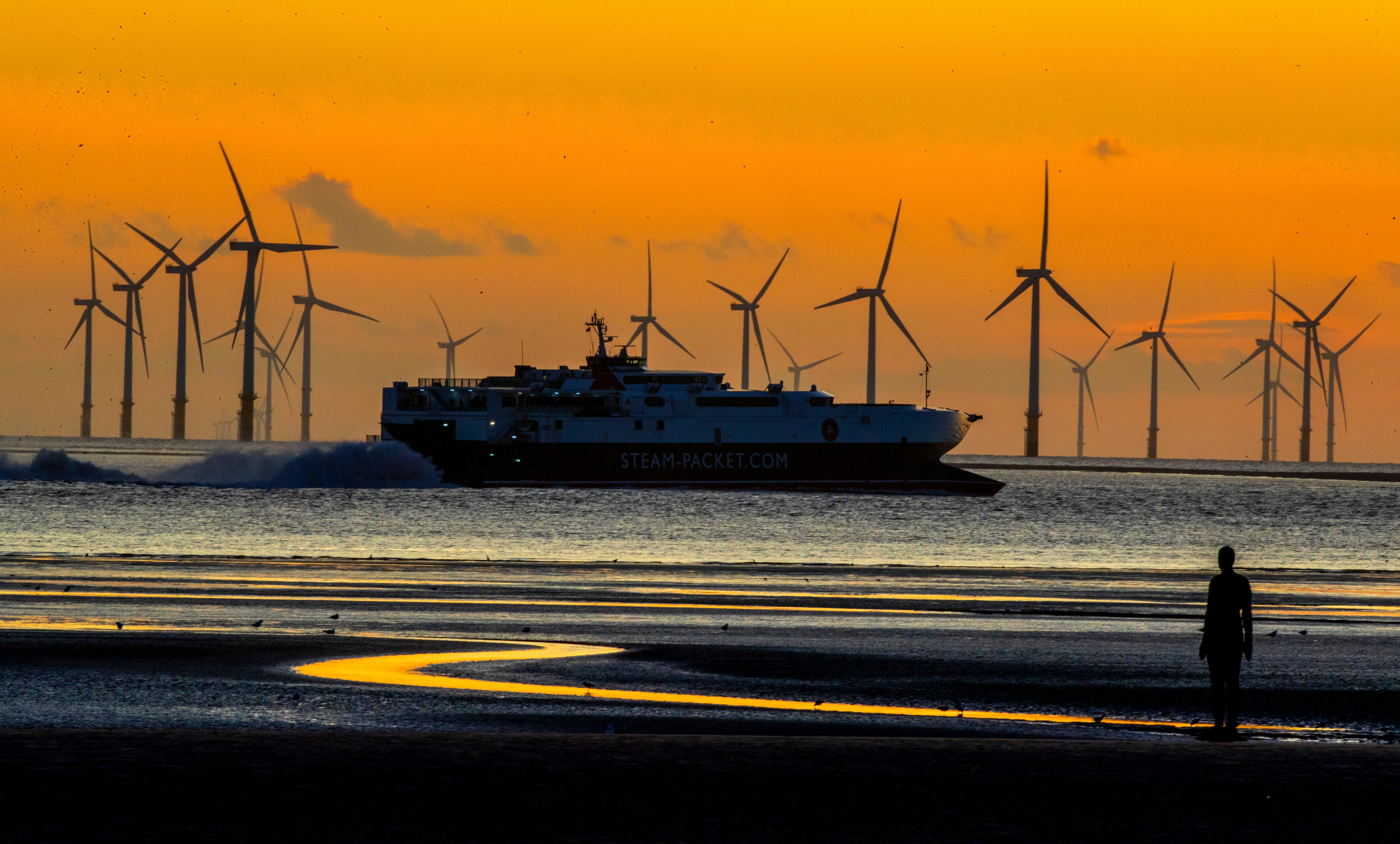Government knew its climate policies fell short of key emissions reduction target but kept it secret, lawyers say
Climate campaigners tell high court ministers knew policies they were able to quantify did not add up to the reductions necessary to meet one of the key emission reduction targets

The government knew its policies to reduce greenhouse gas emissions would not add up to meet a key stepping stone on the path to net zero but kept it secret, it has been alleged.
Lawyers for climate campaigners taking the government to court over its net-zero strategy on Wednesday said the government was aware the policies they were able to quantify did not add up to the reductions necessary to meet one of the key emission targets but did not make this clear.
At the time that the net-zero strategy was published, business secretary Kwasi Kwarteng “relied on unquantified additional proposals and policies to assume the shortfall would be made up”, lawyers for the climate campaigners allege.
The stepping stones on the way to reaching net zero by 2050 are known as carbon budgets and they place a legally-binding restriction on the total amount of greenhouse gases the UK can emit over a 5-year period
Katie de Kauwe, a lawyer for Friends of the Earth, one of the groups taking the government to court, said the quantified policies only added up to around 95 per cent of the carbon reductions needed to meet the sixth carbon budget.
“That is not specified anywhere in the net zero itself, so parliament was not aware of this,” she said. “We only learnt of this through these court proceedings. This information was not made public.”
The sixth carbon budget covers the period 2033 to 2037, during which time the UK will be able to emit 965 million tonnes of greenhouse gases.
“The duties under the Climate Change Act are to prepare policies that will enable carbon budgets to be met, not 95 per cent of them to be met,” Ms de Kauwe said.
“Consider also that 5 per cent is a significant amount,” she added, pointing to the 965 million tonnes. “These are big numbers.”
Three environmental and legal groups took the government to court on Wednesday arguing that the government’s net-zero strategy is “irresponsible” and “unlawful”.
Cases brought by Friends of the Earth, environmental law charity ClientEarth and legal campaign group the Good Law Project claim that the government’s plans are in breach of climate law as they omit vital details and “completely fail” to show how targets would be met.
It is the first time the government has faced a legal challenge to its net-zero strategy, which was formally published in October. The government has insisted the strategy complies with its legal obligations and has been endorsed by the independent Climate Change Committee.
But the campaign groups say the strategy does not detail emissions reductions each proposed policy is meant to achieve. They argue this means it is unclear if the initiatives can deliver on the targets the government is legally required to meet under the Climate Change Act.
Their lawyers say during the course of the court proceedings Mr Kwarteng “revealed” that analysis by government officials had indicated that the quantified policies to be included in the strategy “would not fully meet” the sixth carbon budget.
Instead, Mr Kwarteng “relied on unquantified additional proposals and policies to assume the shortfall would be made up,” the lawyers’ skeleton argument reads.
“Our position is that in order to comply with the Climate Change Act, you need policies whose quantified impact adds up the emissions cuts required to meet the carbon budgets,” said Ms de Kauwe. “You can’t supplement this with a hope that other policies, not yet capable of quantification/still to be developed, will guarantee the rest.”
The net-zero strategy was published in October and outlines how the country is supposed to slash its emissions by at least 100 per cent of 1990 levels by 2050, a target known as net zero.
It proposes measures including the construction of more nuclear power stations, restoring peat, encouraging walking and cycling, and committing millions of pounds to new hydrogen and industrial carbon capture schemes in order to reduce emissions.
A spokesperson for the Department for Business, Energy and Industrial Strategy said: “We cannot comment on ongoing legal proceedings. However, we maintain that our net-zero strategy complies with our legal obligations, has been endorsed by the independent committee on climate change, and builds on the UK’s proven track record of decarbonising faster than any other G7 country.
“It sets out specific and detailed measures we will take on our path to eliminate the UK’s contribution to climate change, helping businesses and consumers move to clean, affordable and more secure home-grown power, supporting up to 480,000 well-paid green jobs, and leveraging up to £100bn of private investment by 2030 – all while reducing Britain’s exposure to volatile gas markets.”

Bookmark popover
Removed from bookmarks